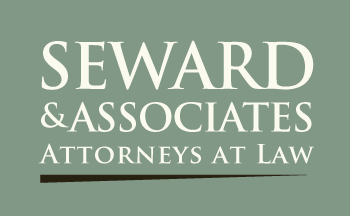
A Brief Introduction of Step-Up in Basis
By: Junfen Tang
Definition
Under Internal Revenue Code Section 1014(a), the basis of an inherited property from a decedent is generally (1) the fair market value of the property at the date of the decedent’s death, or (2) the fair market value of the property on the alternative valuation date.
Thus, when the above applicable fair market value of an inherited property is above its original purchase price that had been paid by the decedent, the heir who inherits certain property can use the fair market value as his or her cost basis and minimize the capital gains taxes owed if the property is sold later.
Why Step-Up in Basis
The underlying theory for step-up in basis is avoiding double taxation. Double taxation means that the taxpayer is taxed twice on the same income or assets.
In general, the taxpayer is subject to capital gain taxes for income generated from the sales of appreciated \ assets. If a taxpayer chooses not to dispose of his or her assets on or before his or her death, no capital gain taxes can be collected for the appreciation of these assets. However, the fair market value of these assets at the time of the death of the taxpayer shall be included into the deceased’s estate, thus, will be subject to estate tax, at least for those individuals with taxable estates.
Then, if the heir sells above inherited assets and is required to calculate capital gain based on the original costs in the hand of the deceased, the differences between the fair market value at the time of the taxpayer’s death and the original costs are likely to be taxed twice, which include the estate tax over the deceased’s related estate and the capital gain taxes upon the heir’s sales of these inherited assets.
Therefore, the U.S. tax code allows heirs to raise their cost basis to the inherited assets’ fair market value at the time of the decedent’s death, which means the heir obtains a step-up basis on the inherited assets.
How Step-Up in Basis Works
- Scope of application of the step-up in basis.
The step-up in basis provision applies to real estate, other tangible property, and financial assets like stocks, bonds, and mutual funds as well. - Determination of the step-up in basis.
First, the step-up in basis is determined on the date of the owner’s death, or by using an alternative valuation date. The former calculation is relatively simple. For example, an inherited public security’s step-up in basis will be its closing price on the date of the decedent’s death or most recent trading date. While the step-up in basis is determined by using an alternative valuation date, the executor of the decedent’s estate must file an estate tax return known as form 706 and elect to use the alternative valuation on that return. Moreover, the step-up in basis must be the fair market value, which may be determined by the public market price of the same assets, the likely determination of the value of publicly traded stocks, or through a professional third-party assessment, for example determining the value of a piece of art. - Step-up in basis for community property.
Residents of the community property states, which include Washington state, can take advantage of the double step-up in basis rule. Community property means all assets accumulated during a couple’s marriage. A living spouse will be entitled the step-up in basis on the whole community property at the time of the other spouse’s death, not only for the fifty percent of the community property. Here is an example that may help your understanding of the double step-up in basis: Amy and Ben were married couple and residents of the State of Washington, a community property state. The couple purchased a house thirty years ago with a cost basis as $200,000. Ben passed away this year and their house’s fair market value increased to $800,000 at the date of Ben’s death. Ben was entitled to fifty percent of the value of the house and his estate will leave the house to his surviving spouse according to his will. If there are no applicable community property rules, then only Ben’s estate will have a step-up in basis, and Amy will have a new basis of $500,000 on this house. However, the community property rules apply, and Amy is allowed to a new basis of $800,000 on this house. - No step-up in basis for lifetime gift.
Although the step-up in basis provision applies to the inherited assets, for which titles are passed to heirs, beneficiaries cannot take advantage of the step-up in basis on properties that are gifted during the decedent’s lifetime.
Step-Up in Basis as a Tax Loophole
In fact, the step-up in basis provision has often been criticized as a tax loophole, which focuses mostly on the wealthy families that escape millions in taxes while their next generation enjoys the advantage of owning these assets. Like the above-mentioned underlying theory for the step-up in basis, the extensive amount of the estate tax exemption helps wealthy families to eliminate both estate taxes and capital gain taxes as well. Thus, the Biden administration and legislative leaders have developed a proposal to tax estates on the appreciation of the inherited property’s value. People are still waiting to see if the step-up in basis rules will be changed in the future as pressure on Congress to increase tax revenues continues.
Conclusion
Knowing the rules as outlined above, it is clear that the step-up in basis provisions should be included in your estate plan. You are advised to consult with a professional tax advisor for assistance in this area of estate planning because of both the possibility of losing the advantages of a step-up in basis of appreciated inherited assets and the complexity of the application of the rules in this area.
Ms. Tang received her Master’s in Tax degree from the University of Washington School of Law



 Seward & Associates, Attorneys at Law, is pleased to announce our new association with Port Orchard Law.
Seward & Associates, Attorneys at Law, is pleased to announce our new association with Port Orchard Law.
 Wishing all of our clients, friends and associates a Great Holiday Season and a Happy and Prosperous New Year!
Wishing all of our clients, friends and associates a Great Holiday Season and a Happy and Prosperous New Year!








 Estate Planning Seminar
Estate Planning Seminar

